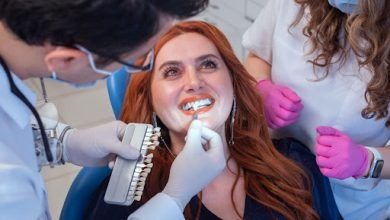Are Aligners Safe? [Explainer]
Aligners can be clear aligners that experts recommend or home aligners that are relatively new to the market. And you may be wondering whether aligners are truly safe for your oral health or not.
In this article, we’ll discuss the safety and effectiveness of aligners as well as their risks. First, we’ll answer our original question: are aligners safe?
The Quick Answer
The quick answer: yes, aligners are safe.
Aligners have been proven to solve different teeth problems and prevent more serious oral problems. Many professionals also recommend aligners for bite problems.
Wearing aligners lead to healthier teeth and gums. When the teeth are properly aligned, the gums fit better around them, which in turn prevents potential periodontal problems.
Aligners also contribute to the prevention of tooth decay and oral diseases like mouth sores, bleeding gums, bad breath, and permanent tooth loss.
While aligners are generally considered safe, one kind of them is being questioned about safety: home aligners.
What Professionals say about Home Aligners
Home aligners are a relatively new kind of service from aligner providers like Smile Direct Club. They are a quick and easy alternative to traditional aligners, and most dentists agree that they are safe for people to use.
With home aligners, you start by knowing whether you’re a good fit for the home treatment. Then, you receive an impression kit. Based on that, the provider will send you the at-home aligner kit.
The safety issues that point to home aligners include:
No In-person Consultation
When using home aligners, you won’t be seeing an orthodontist or a dentist in person. You won’t be scheduling a consultation with a dentist for a comprehensive exam.
The professional won’t be there to know if the home aligner treatment is the best one for your teeth problem.
Treatment Cannot Be Adjusted
Throughout the treatment, your teeth may align faster or slower than anticipated. They may also move in unexpected ways.
An orthodontist may be able to adjust your treatment along the way, but home aligners cannot be adjusted. The treatment is entirely based on your initial scans and teeth impressions. Non-adjustment throughout the treatment can result in serious damage to your teeth and gums.
Home aligners are not for Everyone
Everyone has different orthodontic needs. Home aligners may not be the best option for your specific needs.
Orthodontists can know how special your needs are and therefore can recommend the best type of aligner available in the market for you. Meanwhile, home aligners deal only in clear aligners, which may not be the most suitable option for you.
Underlying Problems Go Unchecked
An orthodontist may also be able to find hidden or underlying dental issues that cannot be solved by home aligners.
Many orthodontic issues not only involve the teeth; many also involve the jaw and other body parts. Home aligners are not the best solution for such cases.
But Aligners still Have Huge Benefits
Despite these concerns about home aligners, many people still use them and get the results they want. As mentioned, aligners are effective for treating mild to moderate teeth problems.
People also cite other important benefits they get by using aligners. These benefits include:
- Appearance – many people feel embarrassed when using braces or brackets. Clear aligners solve this problem.
- Control – traditional braces cannot be removed easily. Clear aligners can be taken out when eating or during other occasions quite easily.
- Hygiene – you can brush and floss your teeth without difficulty since aligners can be removed easily.
Overall, aligners are safe to use for many people. Safety problems exist when you forget to consult your orthodontist first and know whether a specific aligner treatment is suitable for your teeth and gum condition.




